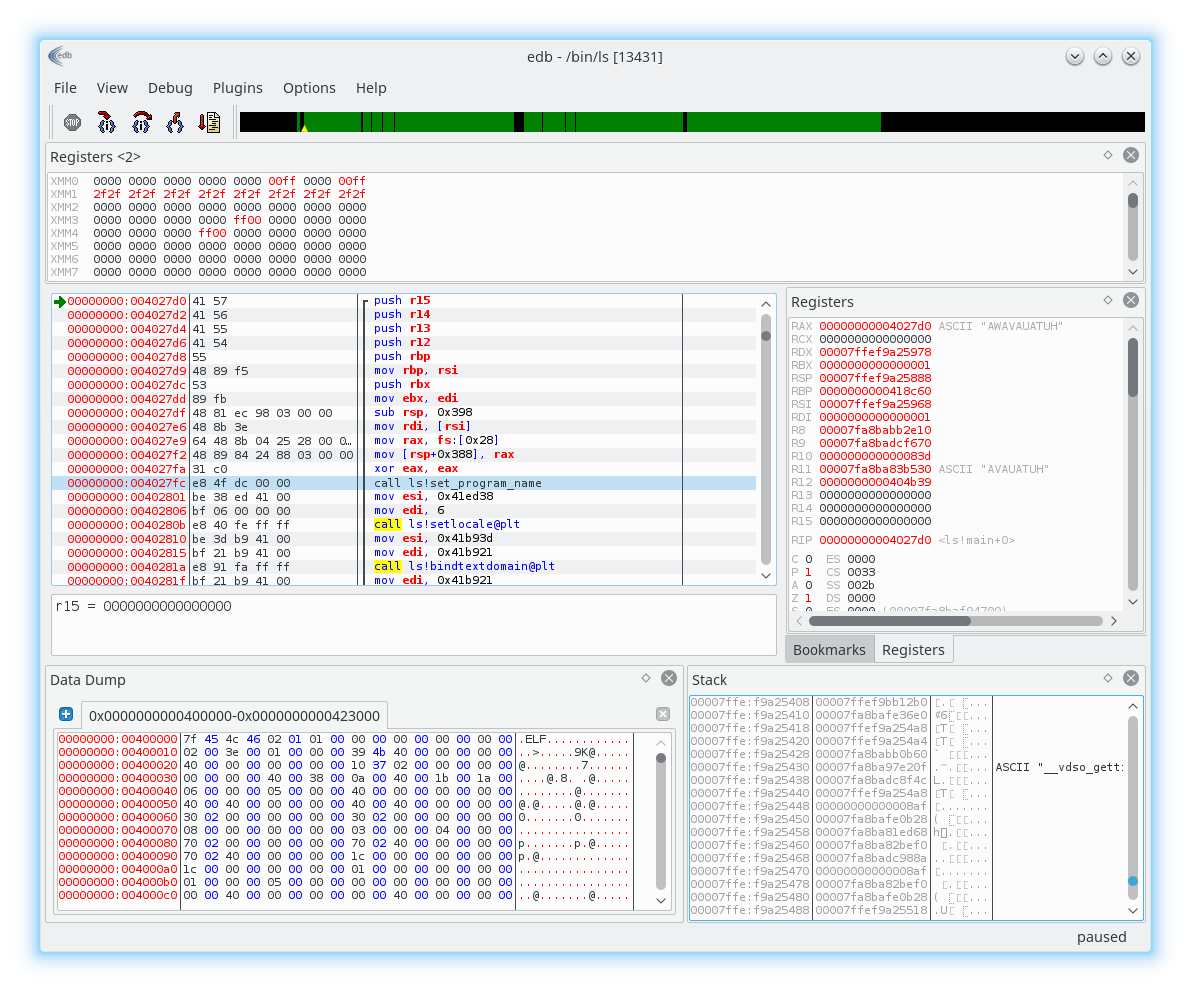edb is a cross platform x86/x86-64 debugger. It was inspired by Ollydbg, but aims to function on x86 and x86-64 as well as multiple OS's. Linux is the only officially supported platform at the moment, but FreeBSD, OpenBSD, OSX and Windows ports are underway with varying degrees of functionality.
edb is available under the GPL 2 license, see the COPYING for details.
NOTE: This README now only covers the most essential documentation, for more complete documentation see the wiki
When cloning the repo, please use git's --recursive flag to ensure that the sub-modules will be properly cloned and updated to the correct versions. Here is an example:
git clone --recursive [email protected]:eteran/edb-debugger.git
Compiling edb is generally quite simple. edb currently depends on the following packages:
- Qt >= 4.6
- Boost >= 1.35 (headers only)
Many distributions already have packages that satisify these.
Once you have Qt and Boost installed, it is as simple as
$ qmake
$ make
This will build the debugger along with all plugins I have written. On certain
systems your qmake may be named slightly differently, I've noticed that the
Fedora Core rpms name it qmake-qt4.
If you are planning on doing a make install, you likely want to specify the default plugin path, here's how you would do that.
$ qmake -makefile DEFAULT_PLUGIN_PATH="/usr/lib/edb/"
$ make
Basic installation is simple, you may run
$ make install
Or if you would like to specify where things should go, you probably want to use something like this
make INSTALL_ROOT=/usr/ install
In which case the plugins will be installed in /usr/lib/edb and the binaries will be installed in /usr/bin/. Finally, if you are doing a make install, you probably want to specify a default plugin path, this is done during the qmake process.
In order to have edb take advantage of certain features (such as the Heap analyzer plugin), it will need some symbol maps to work with. The easiest way to create these is to run edb with the --symbols flag, here's an example:
$ ./edb --symbols /lib/libc.so.6 > symbols/libc.so.6.map
The name of the symbol file IS IMPORTANT, a quick and dirty way to get all symbols from most existing libraries on your system would be like this:
$ for i in $(ls /lib/.so /lib/i386-linux-gnu/.so /lib/x86_64-linux-gnu/.so /lib32/.so /usr/lib/.so); do edb --symbols
This will take a moment, but not that long and you will have symbols based on all libraries on your system. Note that the edb_make_symbolmap script will work on regular binaries as well, not just libraries. So if you are debugging an application, you may want to generate its symbols as well. Eventually, I will build a "Regenerate Symbols" feature into edb (a plugin perhaps?), but for now, the script will have to do.
